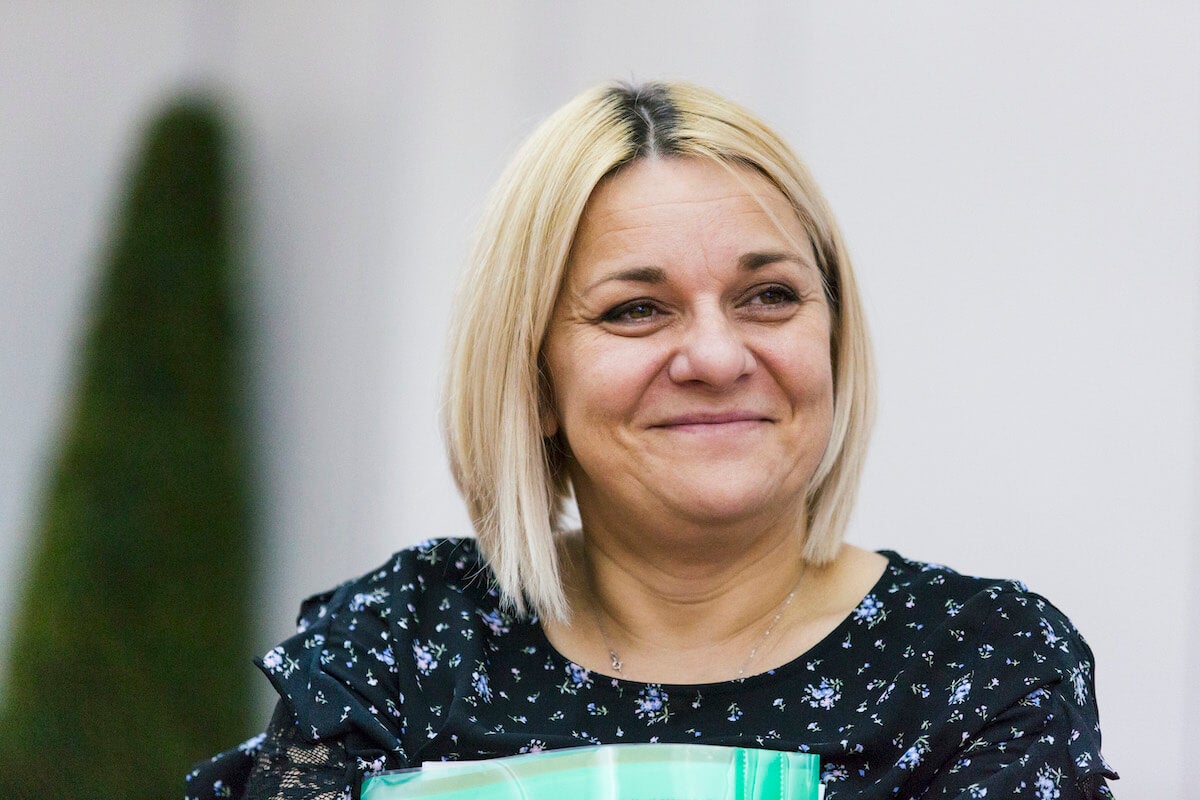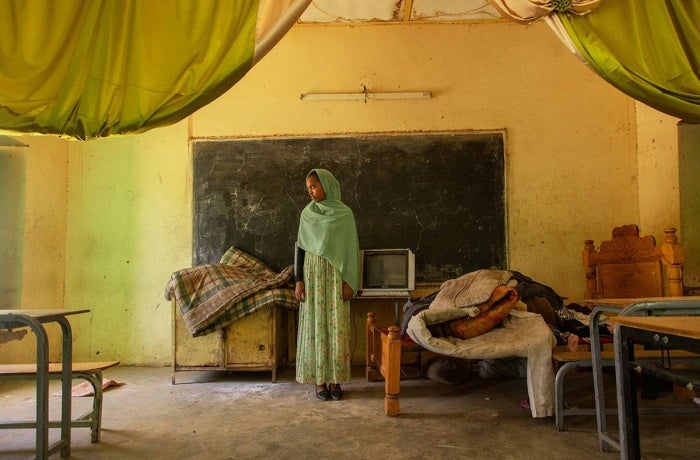In the words of Anastasia Perepylytsia: "Women are half of the population, whose opinions and needs must be taken into account."
Anastasia Perepylytsia, 44, is no stranger to displacement. In 2014, she had a stable job in finance and lived a normal life together with her husband and two children in Donetsk, eastern Ukraine. But when the Russian army invaded her hometown, she had to flee with her family to Zaporizhzhia, a city situated on the banks of the Dnieper River in the southeast. When the war began in 2022, she had to leave again, relocating to Novovolynsk in western Ukraine. At first, she struggled to find employment, information or psychological support—until she came across UN Women’s ‘Community Mobilization for Empowerment’ project. Now, she is using her experiences of displacement to help others in similar situations adapt.

I have been displaced twice. Both times I was running from war: first, in 2014, when the Russian military occupied my hometown Donetsk; and second, after the full-fledged Russian invasion to Ukraine in February 2022.
Back in 2014, my family and I moved to Zaporizhzhia. Despite the difficulties that all internally displaced persons (IDPs) faced, it became my home. Between 2014 and 2015, Zaporizhzhia hosted 127,000 officially registered IDPs from eastern Ukrainian regions. Being an IDP myself, I volunteered for local civil society organizations and engaged in local initiatives to support the most vulnerable among the internally displaced. Later, I enrolled in the ‘Community Mobilization for Empowerment’ project implemented by UN Women in eastern Ukraine, later becoming the Regional Coordinator.
After the Russian offensive this year, the fear for my children’s lives made me flee again—this time to Novovolynsk city, in western Ukraine. From the first days of the invasion, communities in west Ukraine have become safe harbours for IDPs from all over the country. But local residents and authorities were new to this experience, so no proper systems were in place. I knew what needed to be done step-by-step, so I went to the local council and volunteered to help.
In Novovolynsk, we organized the humanitarian office. When the number of IDPs reached 7,000 people, I started projects to provide psychological aid, information support and child-friendly spaces. Since April, I have volunteered to be a special adviser to the mayor for the internally displaced. I want to do as much as I can to help. I am happy that my experience—no matter how difficult and painful—has become not a burden but an asset for other people in need.
During the war, women face numerous challenges, both personal and social-civil. First of all, this is a question of the safety of families—children, elderly relatives, and loved ones. Movement, both within the country and abroad, is on a huge scale. Because men usually stay, if possible, to work in their regions, go to the Armed Forces or ranks of territorial defense, women try to arrange everyday life—provide education for children, psychological and physical safety, and treatment of sick and elderly relatives in different cities, regions and countries.
Despite your own war trauma and psychological state, you have to make daily decisions—which region to be in, to leave or stay in the country, to place your child in a new school or to continue studying online, how to find suitable housing for the family, where to find a hospital and doctors in the new place of residence, how to feed the family, where to get a job, how to earn money. And the most difficult is the situation of uncertainty, which prevents decision-making. In addition to these issues, women in Ukraine, if there is an opportunity, continue to work in various conditions and are tireless volunteers, providing support to displaced persons, the needy, the injured and the military.
The participation of women in humanitarian response is absolutely necessary. In addition to the fact that women are half of the population, whose opinions and needs must be taken into account, a huge range of issues is traditionally in the female gender framework in Ukraine—child rearing, education, health care, social protection, etc. The participation of women increases the effectiveness of response and allocation of resources, makes decisions more practical, and ensures consideration of the needs of the most vulnerable segments of the population—families with children, the elderly, and people with disabilities.
In addition to humanitarian response, it is extremely important to involve women in all—without exception—decision-making processes: both the planning of rapid response measures and the planning of the future recovery of the country and its economy, the development of new socio-economic networks and the establishment of sustainable security and peace for all.









